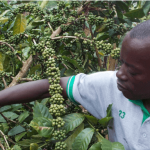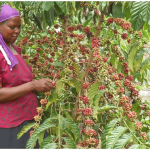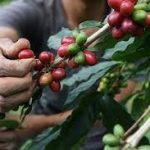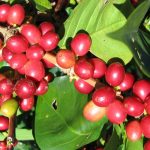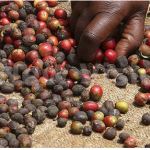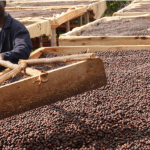As effects of climate change continue to hit farmers growing cereal crops, especially maize, scientists in a number of African countries are trying to develop drought-resistant varieties to overcome this challenge.
Increasing incidences of drought in Africa are affecting maize production, a major staple crop, which resulted in frequent crop failures. However, the challenge in plant breeding is developing maize that is tolerant to drought.
So, a public-private partnership as the Water Efficient Maize for Africa (Wema) was formed in 2008 and has been engaging scientists to develop such varieties in four African countries for small holder farmers.
Some results
This effort has shown that maize can be made water efficient through modern methods of plant breeding. Under Wema, the breeding is being done through conventional means, marker-assisted selection and biotechnology.
African Agricultural Technology Foundation (AATF), which is based in Nairobi, Kenya, is leading the partnership. It involves research institutes in five countries, namely Uganda, Kenya, Tanzania, Mozambique and South Africa.
Scientists are currently field testing MONS87460, a maize variety developed by Monsanto.
Under conventional breeding, 40 varieties were submitted to national performance trials; from Kenya, there were 16, and from Uganda, there were 24.
Kenya and Uganda have gone ahead with their third and fourth trials, with Mozambique and Tanzania following. South Africa has completed its fourth trial.
Wema varieties developed through conventional means will be released to farmers in Kenya and Uganda early this year. But those developed using transgenic materials will be available to farmers depending on research results and regulatory approval in each country.
Scientists in Uganda have also realised there was also a challenge of the Stem Borer Pest. So, two years ago, the team began developing the Bt variety with resistance to both drought and the pest. There are six varieties that were released by the Ministry of Agriculture.
Dr Grace Abalo, Wema project deployment team leader, based at Namulonge research institute, said there are also varieties known as Tego hybrids. They are conventionally bred white maize hybrids that are drought tolerant and high yielding under optimal agronomical practices.
Reach many farmers
The two varieties namely We2101 and We2130 were released late last year. They have maturity periods of 140 and 146 days respectfully.
Other varieties available include We2104, We2106, We2114 and We2115. They mature between 138 to 150 days and all the varieties are tolerant to the Northern Corn leaf blight, grey leaf spot and maize streak virus.
The team intends to reach as many smallholder farmers as quickly as possible while ensuring the long term sustainability of the seed for the farmers.
Seed companies interested in commercialisation of the hybrids will then apply to an allocation committee, which will evaluate the applicants. Those companies, which qualify to multiply and supply the seeds, will enter into agreement with AATF to ensure that the seed they are supplying is of the right quality.
Foundation seed production is currently in progress in Namulonge and it will be rolled out to seed companies in May this year.
Dr Michael Otim, one of the scientists involved, explains that it is pertinent to develop maize varieties, which are resistant to drought and insect infestation, because these are challenges farmers are currently faced with.
Getting seed to farmers
The seeds will be multiplied and sold to farmers by seed companies who have already applied for licencing certificates of distribution to Wema. Wema team will be directly involved in the seed deployment management, product management of parent seed production and the companies will take over from seed multiplication and distribution.
How the seed will be allocated to companies is done through a committee that has representatives from AATF, Africa Seed Traders association (AFSTA), the International Maize and Wheat Improvement Centre (CYMITT) and the national agricultural research institutions in the different countries.
There will be information sharing among Wema through placement of advertisements in the print and electronic media before the product is allocated to seed companies.
From Daily Monitor.

